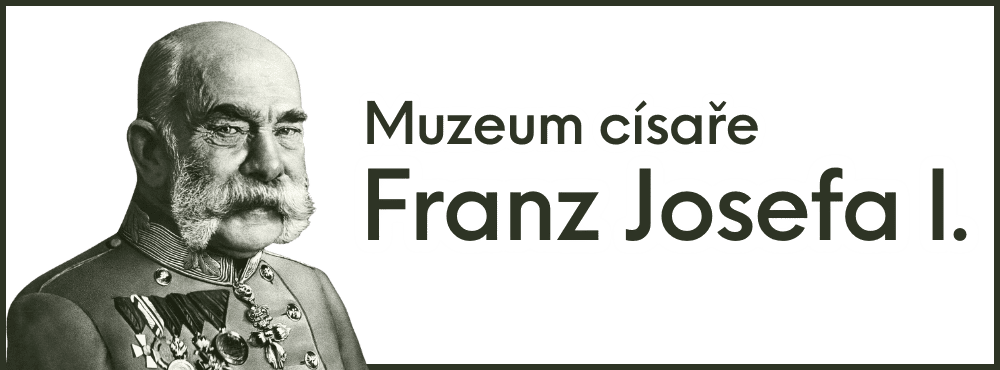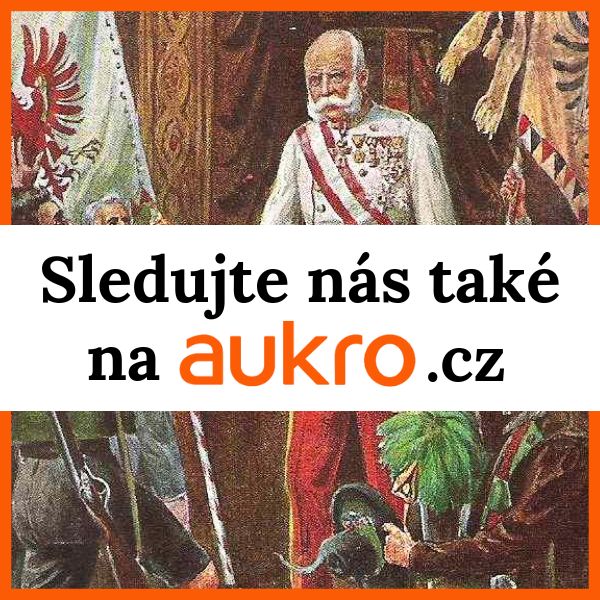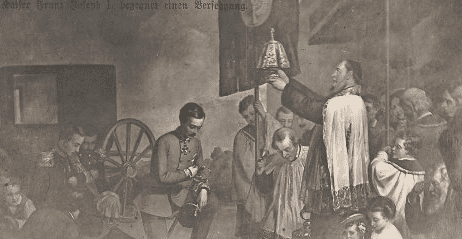Francis Joseph I was born on August 18, 1830 in Vienna to Francis Charles Joseph of Habsburg-Lorraine and Žofia Frederica of Bavaria.
František Karel Josef znám jako arcivévoda rakouský byl druhorozeným synem císaře Františka II. (1786 – 1835) a jeho druhé manželky Marie Terezy Neapolsko-Sicilské (1772 – 1807).
Žofie Frederika Bavorská byla druhá nejmladší dcera bavorského krále Maxmiliána I. Josefa (1756 – 1825) a jeho druhé ženy Karolíny Frederiky Vilemíny Bádenské (1776 – 1841).
František Josef began to learn the languages of the Habsburg Empire from the age of four, not only for this reason he was entrusted to Czech and Hungarian guardians. The study of imperial children was very strict, there was no place for licentiousness or bad manners. Not only Žofia, Franz Josef's mother, but also a long line of capable pedagogues took care of education. The traditions of education laid down by Maria Theresa herself were continued by one of the leading teachers, Count Jindřich Bombelles, as well as the Pilgram council (political science), the court council Josef the free lord of Lichtenfels (criminal and civil law), Dr. Mořic Fränzl (statistics and national economy), Abbot Otmar Rauscher (philosophy and history), Dr. J. Columbus (ecclesiastical law), Dr. Fick (history), Professor Albert Jägel (Tyrolean history), Professor Helm (law), court councilor Zaleski (Polish), later colonel of the Hauslab (military), already from 1847 under the supervision of Chancellor Metternich studied the practical management of state affairs (every Sunday ).
The young archduke, also thanks to his perfect memory and extraordinary understanding and thirst for knowledge, learned to speak French, Polish, Czech and Hungarian fluently in lessons. He enjoyed science, geography, history, law and excelled at drawing, dancing, target shooting and later horse riding. In 1843, the military teacher Colonel from Hauslab developed a four-year military training plan for the almost thirteen-year-old František Josef. He went through the war almost like an ordinary soldier, it is not surprising that he became a proud and vigorous commander from a shy boy.
A story from the childhood of Archduke František Josef
From the commemorative book published on the 60th anniversary of the reign of Emperor Francis Joseph I. 60 let na císařském trůně Habsburském, autor Karel Weide a do češtiny ji přeložil H. D. Moravský.
"On August 18, 1834, the imperial family intimately celebrated the fourth birthday of their beloved offspring in Laxenburg. The little Archduke occupied himself in one of the beautiful pavilions with his toys, with which he was abundantly included on this day. He was especially happy with a group of wooden soldiers that his grandparents gave him. While playing this, his attention was suddenly caught by the figure of a living soldier standing guard near the pavilion.
For a long time, the little prince watched the man who stood as if cast in iron in a white military coat and narrow Hungarian trousers with a large helmet on his head. When the emperor's grandfather came to the pavilion, Franci ran to meet him and pointing at the guard, he asked naively: "Isn't it true, that man over there is poor?" "Why do you think that, Franci?" asked the emperor with a smile. “Because they must stand guard here.” “Ah, my child, every soldier must, and imperial princes are soldiers too. But you guessed it by chance, he is really poor. Go there and give him this note!” “Franci” took the money, hopped joyfully to the pawn and handed him the note, but the man only changed his position by honoring the little archduke at arms. The little benefactor stood there, full of embarrassment, with a banknote in his right hand and his left index finger in his mouth in the manner of small children.
"Of course," cried the emperor, delighted by this sweetly comic scene, "a soldier on guard must not take anything in his hand, that is against his duty. So try it and put it in his dust box!'
The dustpan that hung behind the soldier's back was very high for the little archduke, although he turned off, stood on tiptoe and stretched out his hands. Here the emperor, joined by the empress by now, came to his aid - he raised his grandson - the empress opened the dust box and the little archduke could finally give the "poor man" his gift. Then he went back to his toys happy and joyful. The painter Petr Fendi, who witnessed this scene, captured it with a cute genre sketch, according to which he made a world painting. This painting was kept by Empress Caroline Augusta as her property until her death (1873), after which the painting became the property of the city of Vienna."



